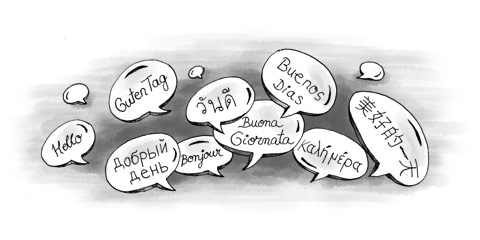There are subtle differences between the English spoken in Canada and the one spoken in the USA and in the UK. Canadian English is somehow as relaxed as the American, but generally speaking Canadians use more British words than the Americans do. In terms of pronunciation and spelling they differ slightly in a few constructions, such as “neighbour” in Canada vs. “neighbor’ in the USA.
Learning a new language is often difficult, but necessary if you want to get the most out of your stay. Try to start the learning process before you travel. Watch films in English without subtitles (this is now a lot easier with DVDs), listen to internet radio stations in English and/or French, and read as much as you can in the languages you want to learn. If you live somewhere where there are native English/French-speaking residents, you might want to advertise for a language exchange partner – someone who wants to swap conversation practice.
Mingle with the locals!
The best way to learn English and/or French in Canada is to immerse yourself in it as soon as you arrive into the country. Try to mingle with the locals and start conversations whenever you can, with your neighbours, at the shop, or with the cab driver. It might sound like a painful exercise but it is worth it in the long-run. The more of an effort you make at the beginning, the quicker you will learn and the sooner you will feel comfortable speaking to anyone about anything. Don’t be shy and be willing to make mistakes!
A common mistake foreigners make when arriving in Canada is to stick together with people from their same nationality and not mix with the locals. We recommend you try to make friends with native speakers, as this is the fastest way to master the language. Watching television can also be massively helpful; one of our readers commented how she now understands different accents from watching soap operas on TV.



